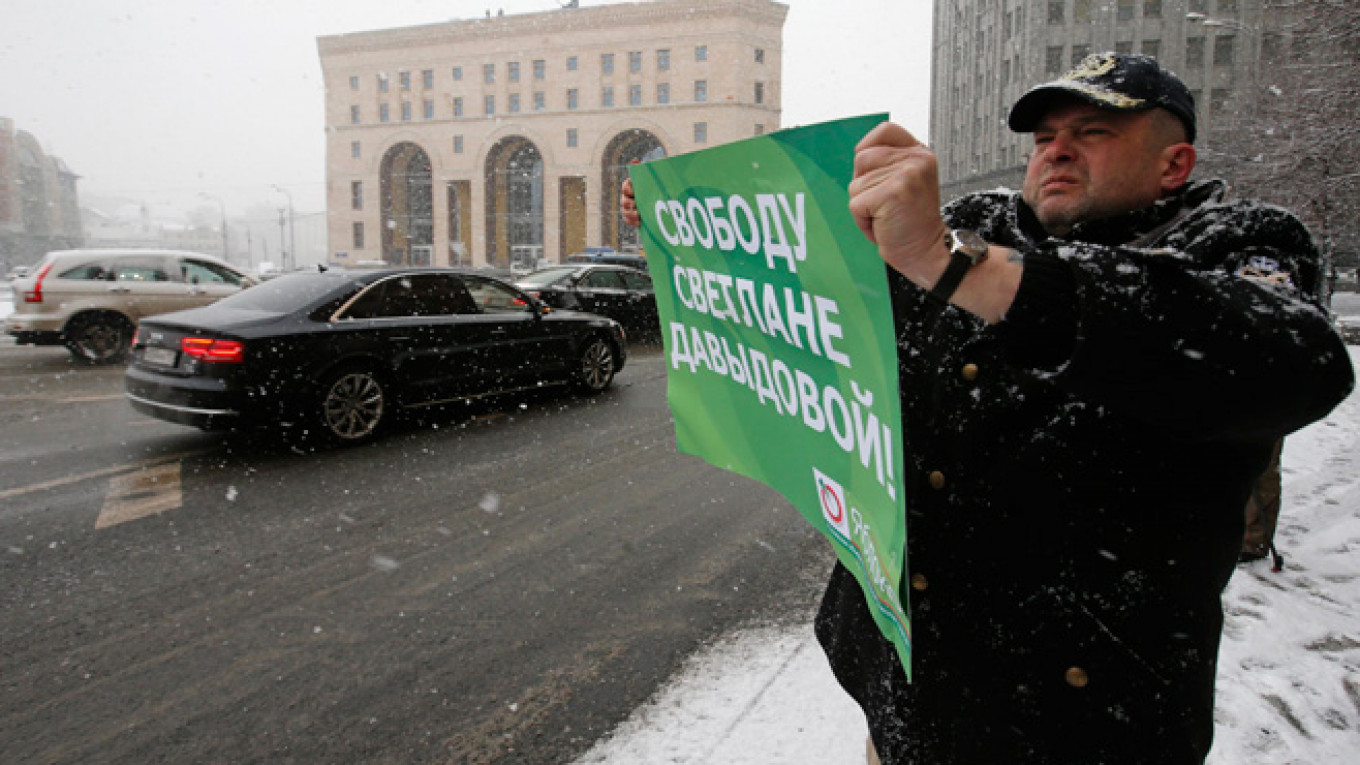Many outside observers believe that Russian society lacks individuals who resist the status quo. That is an illusion caused by the peculiarities of Russian history. The individualism found in, say, France and the United States, is alive and well in Russia as well. The difference is the societal milieu in which it finds expression: The conditions to which Russians have become accustomed influence their collective behavior.
The history of the Russian state and its institutions is very important in this regard. By the time of the revolution in 1917, Russian society had gained vast experience in autonomous action, including the most creative and cruel methods of resisting the ruling regime. If the people who came to power at that time specialized in anything, it was in organizing collective resistance to the authorities, in subversion and terrorist activities.
Those people were smart enough to understand that their former revolutionary comrades with the same skills in subversion were now their enemies.
During the first days of the new regime, the Bolsheviks focused on eliminating the threat posed by everyone capable of organizing and coordinating collective action — the Mensheviks, socialist revolutionaries, union leaders, priests and intellectuals.
Sometimes, though, it was not even necessary to fight such a battle. It is sad and almost funny to read recollections of Mensheviks — the rivals of the Bolsheviks — who tried to establish underground operations during the Soviet era when all of the former laws and rights no longer existed.
How could they set up underground printing press offices if nobody could even procure a tiny little room from the local housing department? And even if they did manage to procure premises through bribery or trickery, the "Chekists," or secret police, never had to get involved: The local authorities would come and seize the printing press for the simple reason that nobody was allowed to own private property.
The political security service that Vladimir Lenin and his talented colleagues created, and that the authorities have since renamed several times, was an instant success. The employees of the agency that preceded and later evolved from the KGB all seem to have had a natural talent for secret assassinations, intimidations, blackmail, ruining reputations, encouraging people to inform on each other, fabricating criminal cases, manipulating the vote and other illicit practices.
Today's state-controlled media are a continuation of the Chekist system and are much smarter than their previous incarnations. They carry out the task of suppressing all collective protests or expressions of criticism by using proven and modern techniques of sowing misinformation, confusion and conflicting signals. The content of the message is unimportant. What matters is that it breaks down trust between people and destroys the social capital.
Direct public resistance is simply impossible under such conditions precisely because the manipulators in the media deliberately eliminate the means for coordinating action and, most importantly, developing mutual trust. Any attempt at joint action between two people, much less a group of people, must first deal with the "prisoner's dilemma" — that is, of not knowing if the other person is an informant, or likely to become one.
And once that uncertainty is firmly in place in the minds of the people, the widespread sense of distrust effectively stifles any coordinated action. That leaves only the possibility of individual action.
When the ruble recently fell and people rushed to buy up everything from new cars to sacks of buckwheat, it was not a coordinated movement, but hundreds of thousands of individuals each coping with the problem in their own way.
Corruption at the local level is the same thing. In the absence of a viable justice system, everyone copes with their problems individually, paying bribes to functionaries or officials in full knowledge that the Russian government has no "contract with the people."
Even beyond the country's borders, Russians are extremely reluctant to make contact with other Russians with whom they are not already acquainted. Wherever they live in the world, Russians almost never form functioning or cohesive diasporas, and yet they assimilate readily into local populations and quickly join local groups and communities.
This offers further proof that Russia's problem is not in the people themselves, but in the social environment in which everyone lives.
Russia consists of radical individualists — smart people who hold no illusions and who simply do what they must in order to survive. That is the Russian resistance. It is not an especially spiritual or patriotic mind-set. The fact that nearly 80 percent of the population supports the current leadership is an expression of a sort of "radical conformism" stemming from deep-seated mistrust.
And this is what makes life in Russia so unsettled. It is difficult to bring people together for "complex" tasks such as a neighborhood clean-up campaign because it requires first explaining its purpose and overcoming everyone's habitual suspicion that the organizers are actually pursuing self-serving goals.
That is why it has historically been simpler to overthrow a ruler by riding a wave of popular discontent than it has been to organize grassroots activism: The latter requires long-term mutual trust whereas the former is a quick and easy — albeit destructive — act of mob violence.
Constructive tasks are always more difficult. And even after Russia's state-controlled media and other agencies finally stop working to debilitate society, mutual trust among people will not arise automatically. Future governments will have to tackle that daunting task.
Maxim Trudolyubov is an editor at Vedomosti. This comment originally appeared in Vedomosti.
A Message from The Moscow Times:
Dear readers,
We are facing unprecedented challenges. Russia's Prosecutor General's Office has designated The Moscow Times as an "undesirable" organization, criminalizing our work and putting our staff at risk of prosecution. This follows our earlier unjust labeling as a "foreign agent."
These actions are direct attempts to silence independent journalism in Russia. The authorities claim our work "discredits the decisions of the Russian leadership." We see things differently: we strive to provide accurate, unbiased reporting on Russia.
We, the journalists of The Moscow Times, refuse to be silenced. But to continue our work, we need your help.
Your support, no matter how small, makes a world of difference. If you can, please support us monthly starting from just $2. It's quick to set up, and every contribution makes a significant impact.
By supporting The Moscow Times, you're defending open, independent journalism in the face of repression. Thank you for standing with us.
Remind me later.








